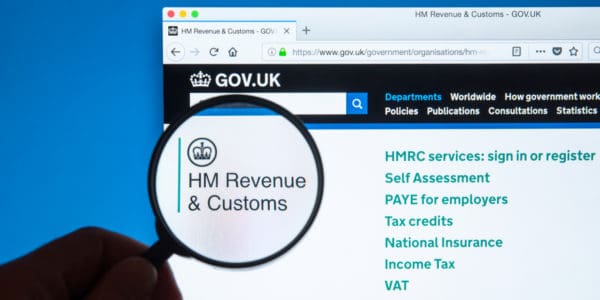If you are a company director, it is important to be aware of Income Tax and National Insurance rates and thresholds, dividend tax requirements, and how you can pay yourself through a limited company.
Ideally, you should consult an accountant for professional advice and tax-saving strategies, but we’ll provide a brief overview of tax rates and allowances to get you started.
Key Takeaways
- Directors must register for PAYE to manage Income Tax and National Insurance contributions effectively.
- The £500 tax-free dividend allowance simplifies dividend taxation for company directors.
- Consult an accountant to optimize your income structure for maximum tax efficiency.
The information stated in this article applies to the 2025/26 tax year, which runs from 6 April 2025 to 5 April 2026.
What tax does a company director pay?
Directors of limited companies are usually also shareholders. In fact, many small startup companies are one-person operations, whereby the only person who owns, manages, and works for the company is the single director-shareholder-employee. Whatever the setup, the following tax rates and allowances may apply:
Income Tax
As a company director, you are normally classed as an employee for tax purposes, so you may need to register your company as an employer and operate Pay As You Earn (PAYE) as part of your payroll.
You will be liable to pay Income Tax and Class 1 National Insurance contributions (NIC) through PAYE on the wages you receive from the company.
No tax or NIC will be due on the first £12,570 if you’re entitled to the standard tax-free Personal Allowance. Above that amount, you will start paying Income Tax and National Insurance on your earnings.
If you live in England, Wales, or Northern Ireland, you’ll pay the following Income Tax rates on your director’s salary:
- 20% basic rate – salary income up to £50, 270
- 40% higher rate – between £50,271 and £125,140
- 45% additional rate – from £125,141
If you live in Scotland, you’ll pay the Scottish Income Tax rates on your director’s salary:
- 19% starter rate – salary income up to £15,397
- 20% basic rate – between £15,398 and £27,491
- 21% intermediate rate – between £27,492 and £43,662
- 42% higher rate – between £43,663 and £75,000
- 45% advanced rate – between £75,001 and £125,140
- 48% top rate – from £125,141
The Personal Allowance is the same for everyone in the UK, regardless of which Income Tax rates you pay. However, your allowance will gradually reduce when you start earning more than £100,000 a year, and you won’t receive any Personal Allowance if you earn over £125,140 per year.
Employee’s National Insurance
You will pay 8% Class 1 employee National Insurance on wages between the NIC primary threshold (£12,570) and the upper earnings limit (£50,270/year). Above the upper earnings limit, you will pay 2% NIC. These deductions will be calculated and taken directly from your wages through PAYE.
Employer’s National Insurance
The company will also have to pay 15% employer (secondary) Class 1 National Insurance contributions on your earnings (and the wages of any other employees) above the NIC secondary threshold (currently £5,000 per year).
However, you may be eligible to claim up to £10,5000 Employment Allowance on your employer NIC liability if your company has more than one director and/or employee earning above the secondary threshold.
Dividend tax
Dividends are paid from profits after the deduction of Corporation Tax. This means that companies pay tax on this income before it is distributed to shareholders. The rules on dividend tax changed on 6th April 2016. Previously, there was no personal tax liability on dividend income for basic-rate taxpayers.
As a result of these new rules, it’s not quite as tax-efficient to take a low salary and higher dividend payments through a limited company as it once was, though it is a far simpler system. The notional 10% dividend tax credit (which most people struggled to understand anyway) was abolished and replaced with a tax-free dividend allowance, which is currently £500 per year.
Above the £500 allowance, you will pay the following rates of tax on dividend income you receive from your company:
- 8.75% on income within the basic-rate tax band (up £50,270)
- 33.75% on income within the higher-rate tax band (£50,271 to £125,140)
- 39.35% on income within the additional rate tax band (above £125,140)
Dividend income is still distributed from post-tax profits, so your company will continue to pay Corporation Tax on these profits before you pay yourself dividends. The idea behind the changes was to discourage people from setting up a company simply to pay less tax – i.e. by taking most or all of their income as dividends rather than as a wage.
Regardless, trading through a limited company is often more tax-efficient than operating as a sole trader (depending on your level of profits). An accountant or tax advisor can help you structure your income in the most tax-efficient way.
Class 4 National Insurance contributions
Whilst not applicable to directors unless they receive untaxed income from self-employed activities (e.g. rental income from privately owned property), it’s worth mentioning this type of National Insurance for clarity.
Class 4 National Insurance is paid through Self Assessment by certain people, including:
- self-employed sole traders and members of partnerships
- people who receive certain types of income not taxed through PAYE (e.g. rental income or freelance work)
These NICs apply when earnings from self-employment exceed the NIC lower profits limit of £12,570. Class 4 National Insurance is charged at 6% on income between £12,571 and £50,270, then 2% on anything over £50,270.
Registering for Self Assessment
If you receive dividends, you’ll need to register for Self Assessment. You will then report your dividend income on an annual Self Assessment tax return and pay any dividend tax you owe directly to HMRC.
Likewise, if you receive any other forms of untaxed income from your limited company or elsewhere (e.g. expenses and benefits, a director’s loan, income from property, side hustle earnings), you must register for Self Assessment, file a tax return each year, and pay any Income Tax and NIC that you owe.
Please note that the information provided in this article is for general informational purposes only and does not constitute legal, tax, or professional advice. While our aim is that the content is accurate and up to date, it should not be relied upon as a substitute for tailored advice from qualified professionals. We strongly recommend that you seek independent legal and tax advice specific to your circumstances before acting on any information contained in this article. We accept no responsibility or liability for any loss or damage that may result from your reliance on the information provided in this article. Use of the information contained in this article is entirely at your own risk.








Join The Discussion
Comments (10)
Hello, I am currently employed and paid through paye and earn above the personal tax allowance. I have just purchased a small deli business. I am unsure whether to operate the business as a sole trader or as a Ltd Company for tax purposes. Are there any tax and NI benefits to operating as a Ltd company if I have already exceeded my personal tax allowance elsewhere? I hope I have explained well enough for you to understand my question. Thank you
Thank you for your kind query, Angie.
Given your scenario, and that you already earn above the personal allowance elsewhere via PAYE, it is likely that in the short term it is more sensible to pay yourself as a sole trader. However, you should factor non-tax related benefits that limited companies provide before making a decision of this magnitude, such as the prestige that a limited company provides, and the protection it provides yourself and your personal assets should the business fail.
We trust this information is of use to you.
Regards,
The QCF Team
Does a non executive statutory director still have to pay corporate tax and any other tax?
Thank you for your kind enquiry, John.
To clarify, only limited companies are required to pay corporation tax – not individuals. Therefore, a Non-Executive statutory director would never have to pay Corporation Tax. In general terms, most Non-Executive Directors are not employees of the company and maintain a directors’ service contract with the company. This means they will need to file a Self Assessment tax return and will be required to pay income tax should their income go above the Personal Allowance threshold.
I trust this information is of use to you.
Kind regards,
Nicholas
Do I have to register for a self assessment if I’m a director of a ltd company but it has not started trading yet?
Thank you for your kind enquiry, Kate.
In general terms, a director of a limited company needs to register for self assessment if they are in receipt of dividends or untaxed income from a limited company. If the company has never traded, there is no requirement to register for self assessment, as all declarations would be nil.
I trust this information is of use to you.
Regards,
Nicholas
1st question:
A Ltd administrator can earn £ 8840 tax free, or up to £ 12,570 by paying NI. I am a foreign administrator residing permanently in Italy, which benefits from the double taxation agreement. Do I have to pay National Insurance if I exceed the amount of £ 8840?
2nd question:
What is the cumulative period on which the total amount received by the administrator is based (example: from January to December, or from April 6 to April 5 of the following year, or on the basis of the fiscal year of the Ltd)?
Thanks in advance for your answer
No problem at all, Davide!
Regards,
The QCF Team
Thank you for your kind enquiry, Davide.
In general terms, you do not need to pay National Insurance contributions in the UK if you have a document proving you pay social security contributions in Italy. For more information, see this link: https://www.gov.uk/guidance/social-security-contributions-for-workers-coming-to-the-uk-from-the-eea-or-switzerland
With regards to the period on which the total amount is calculated – this is based on the financial year April 6 to the following April 5.
We trust this information is of use to you. Should you require further assistance, please do not hesitate to post a following up comment.
Regards,
The QCF Team